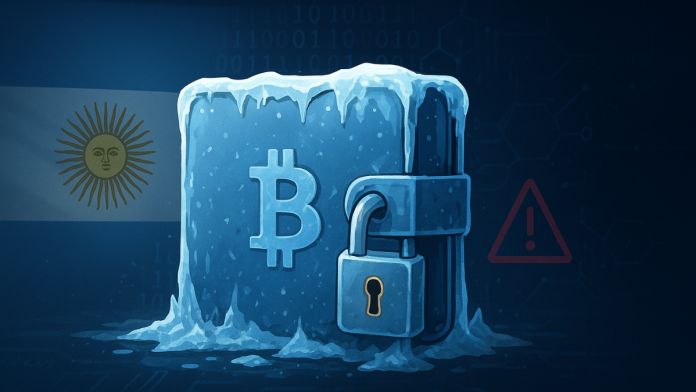In a powerful step to stop terrorism financing, Argentina has frozen more than 200 cryptocurrency wallets. These wallets are linked to an international group based in Syria that many countries recognize as a terrorist organization. Argentina’s Financial Information Unit (UIF), the agency that watches over money laundering and terrorism funding, took action after discovering that these wallets had been used for suspicious transactions.
The UIF got approval from a federal judge to freeze the funds. These wallets are believed to be tied to two foreign suspects. One is a Russian national living in Argentina, and the other has been flagged by both U.S. and Israeli authorities. While the Syrian group recently lost its formal terrorist label from the United States, it is still seen as a threat worldwide. That’s why Argentina decided to act.
Officials said they didn’t find any signs of a direct threat to Argentina. However, the move follows global rules from the Financial Action Task Force (FATF), which encourages countries to stop money from flowing to dangerous groups—even across borders.
Blockchain Tools Uncover Hidden Transactions
This freeze is part of Argentina’s updated anti-money laundering (AML) efforts that were strengthened in 2023. Under the new rules, crypto transactions are closely monitored, especially when they involve high-risk users like non-profits or people with strong political connections.
U.S. Seizes $7.1M in Crypto Tied to Oil Investment Scam Spanning Three Continents
The UIF worked for six months with blockchain experts to trace the digital money. These specialists used advanced tools to track transactions. They discovered that the wallets were tied to online ransom payments and funds that may have been sent to war zones. Some of the transactions even involved dark web activity and local crypto exchanges.
All the money in the frozen wallets will be taken by the government and sold at court-run auctions. The funds from these sales will then go into national security programs. This step shows how seriously Argentina is taking the fight against illegal online funding, especially with digital assets like Bitcoin becoming more common in the country.
Crypto Community Divided Over Controversial Move
Argentina’s decision has sparked a fierce debate at home. Government officials say the freeze marks a huge win for financial safety and transparency. They believe it helps show that Argentina is keeping up with global standards.
🔍 Hidden power shift? China-Argentina relations deepen under cover of visa reform
But not everyone agrees. Some people in the crypto industry feel the move is too harsh. They say that freezing wallets without warning the owners could be unfair. Others are worried that the term “terrorism financing” is too broad and may catch innocent users in the net.
Local crypto groups have asked for better rules and clearer definitions. They say it’s important to separate bad actors from people who are using crypto legally. They also worry that these kinds of actions might scare away new crypto businesses or slow down innovation in Argentina’s growing digital economy.
Still, Argentina is not alone. Many countries around the world are starting to use blockchain tools to fight financial crimes. According to a recent global report, Argentina is one of a dozen nations already using this technology. Since 2022, the number of suspicious transaction reports has gone down by 30%, showing that these tools can be effective.
Authorities also know that keeping up with new digital tools is not easy. Tracking privacy-focused coins and decentralized platforms remains a challenge. Even so, the country is committed to improving its systems and working with international partners to fight illegal crypto activity.
As Argentina gets ready to host the G20 summit in 2026, the focus on crypto regulation is clearly increasing. But for now, the government is standing firm on its latest action: stopping money from getting into the wrong hands.


